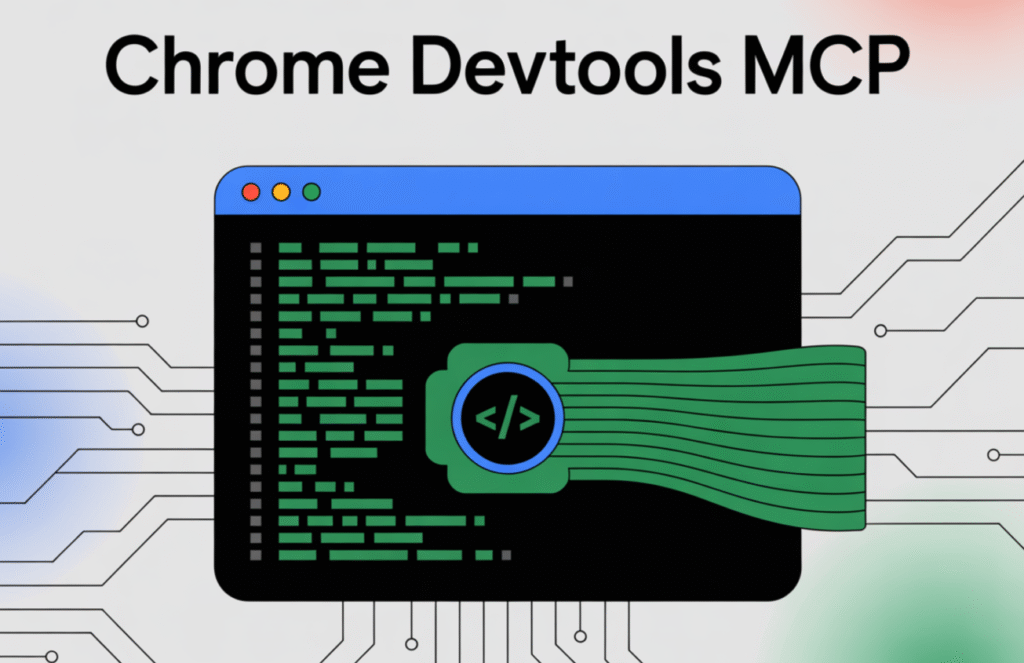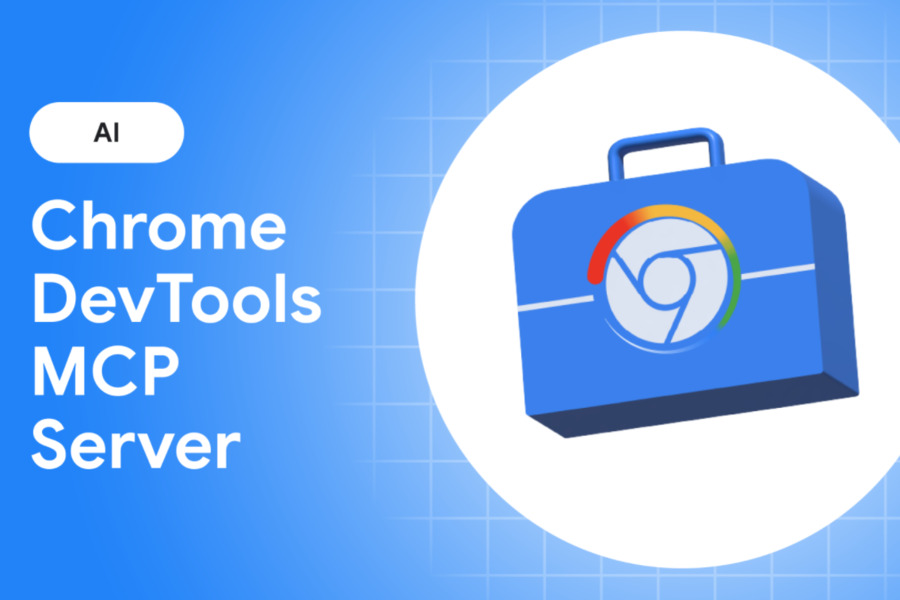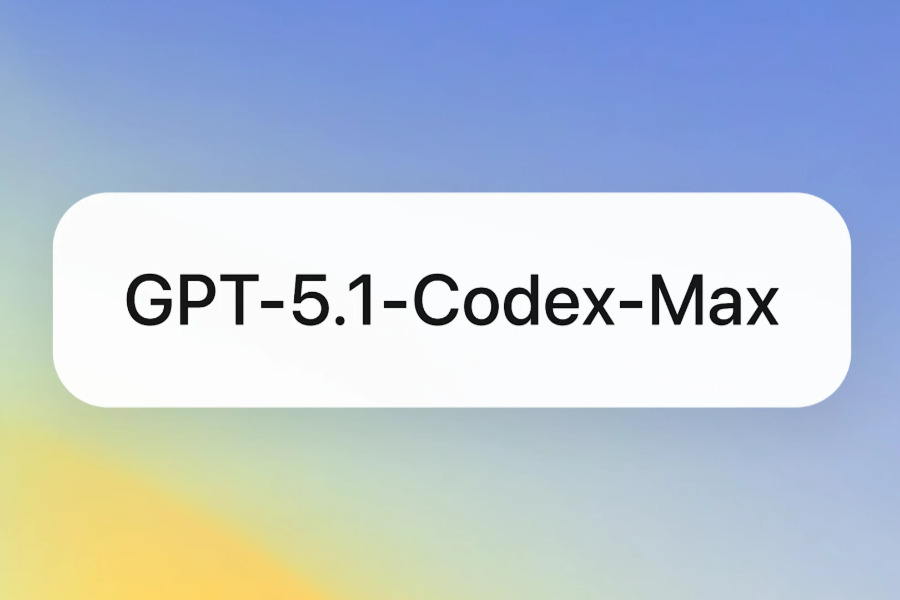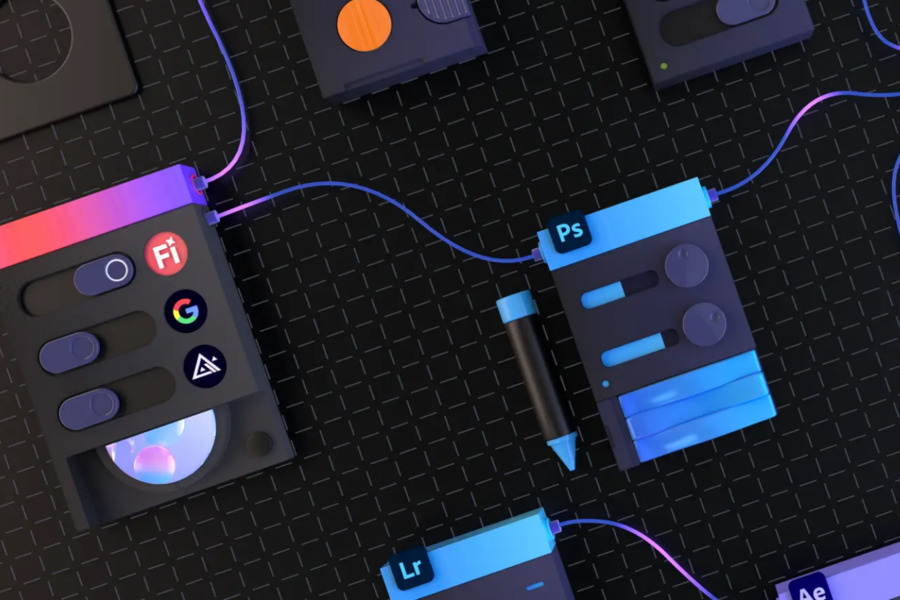In a significant move for AI-assisted programming, Google has officially launched the public beta of Chrome DevTools MCP, a tool designed to connect AI coding assistants directly to the live debugging capabilities of the Chrome browser.
This integration allows AI agents to not only write code but also to execute it in a real browser, analyze runtime behavior, and diagnose issues based on actual performance data.
What is Chrome DevTools MCP?
The Model Context Protocol (MCP) is an open standard that enables large language models (LLMs) to securely connect with external tools and data sources. Think of MCP as a universal API specifically designed for AI agents—it provides the framework for AI models to dynamically discover and utilize external functions without needing custom integrations for each tool.
Chrome DevTools MCP serves as a specialized MCP server that grants AI coding assistants like Gemini, Claude, Copilot, and Cursor direct access to Chrome’s debugging capabilities. This means your AI assistant can now perform tasks such as starting Chrome, opening a website, recording a performance trace, and analyzing the results to suggest concrete improvements.
“This tool transforms AI from a ‘blind code generator’ into a development partner that can see and interact with the runtime environment,” explains the development team behind the project. Before this innovation, AI coding assistants operated without visibility into how code actually executes in a browser—much like writing code blindfolded.
Key Features of Chrome DevTools MCP

1. Real User Behavior Simulation
The tool enables AI agents to mimic human interactions with web pages, including navigation, form filling, and button clicks. This capability is crucial for accurately reproducing complex bugs and testing multi-step user flows while simultaneously inspecting the runtime environment.
2. Live Code Verification
After generating a potential fix for an issue, the AI can immediately validate whether the solution works as intended by executing it in a live browser instance. This creates a feedback loop that helps refine suggestions based on actual results rather than theoretical correctness.
3. Network and Console Diagnostics
AI assistants can now analyze network requests to identify CORS issues, inspect console logs for errors, and understand why specific features malfunction. This deep visibility into the browser’s operation allows for more accurate debugging of asynchronous and network-dependent code.
4. Visual Layout Debugging
By connecting to a live page, AI agents can inspect DOM structure, CSS rules, and computed styles to diagnose complex layout issues. This is particularly valuable for resolving responsive design problems, overflowing elements, and styling conflicts that are difficult to identify from source code alone.
5. Automated Performance Auditing
The tool includes a performance_start_trace function that allows AI agents to initiate detailed performance profiling. The AI can analyze metrics like Largest Contentful Paint (LCP), identify blocking resources, and suggest optimizations based on actual performance data rather than hypothetical improvements.
6. Content Extraction and DOM Analysis
Beyond debugging, the system can extract page content and analyze DOM structure, providing AI assistants with comprehensive understanding of how web pages are constructed and how they function.
Who is Chrome DevTools MCP Best For?
Frontend Developers and Web Testers
This tool is particularly valuable for frontend developers who need to troubleshoot browser-specific issues. The ability to have an AI assistant that can actually see and interact with a running web page represents a significant leap forward from traditional AI coding tools that operate purely on source code.
Full-Scale Development Teams
Development teams working on complex web applications will benefit from the automated testing and debugging capabilities. The tool can run through predefined user flows to validate functionality after code changes, potentially catching regressions before they reach production.
Performance Optimization Specialists
For developers focused on web performance, Chrome DevTools MCP offers AI-assisted auditing that can identify bottlenecks based on real browser metrics rather than synthetic measurements. This can lead to more accurate optimization recommendations tailored to specific user experiences.
AI-Assisted Development Enthusiasts
Users of AI coding assistants like Claude Code, Cursor, and GitHub Copilot will find that Chrome DevTools MCP significantly enhances their capabilities. The integration allows these tools to provide more context-aware suggestions based on actual runtime behavior rather than static code analysis.
Conclusion on Chrome DevTools MCP
Google’s Chrome DevTools MCP represents a fundamental shift in how AI interacts with web development workflows. By bridging the gap between code generation and runtime execution, this tool creates a closed-loop development system where AI can write, test, and debug code in a real browser environment.
The implications for web development efficiency are substantial. Instead of manually reproducing issues to demonstrate them to an AI assistant, developers can simply task the AI with investigating the problem directly in the affected runtime environment. This could significantly reduce the time spent on troubleshooting browser-specific issues and performance optimization.



